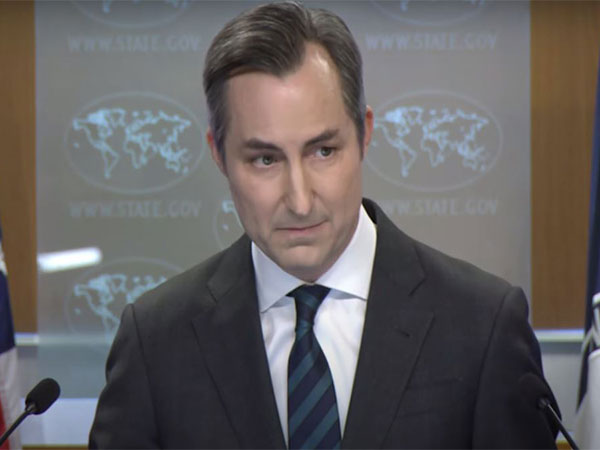Julian Assange's actions put people in danger: US State Department after whistleblower walks free
The day WikiLeaks founder and whistleblower Julian Assange walked free after signing a plea deal with the United States, the US State Department termed his actions for which he pleaded guilty had put the lives of people, especially Washington's allies and diplomats, at risk.

- Country:
- United States
The day WikiLeaks founder and whistleblower Julian Assange walked free after signing a plea deal with the United States, the US State Department termed his actions for which he pleaded guilty had put the lives of people, especially Washington's allies and diplomats, at risk. US State Department Mathew Miller also pointed that Assange served as a "conduit" for Russian intelligence interfering in the US presidential elections.
Assange arrived in Australia after pleading guilty of violating US espionage law, in a deal that set him free of the 14-year legal case. He arrived to a grand welcome in Canberra, as cheers erupted from his supporters gathered at Canberra Airport in the Australian capital. Assange hugged his wife Stella and waved at his supporters.
"I do think it is important when we talk about Julian Assange to remind the world that actions for which he was indicted, for which he has now pled guilty are actions that put the lives of our partners, our allies and our diplomats at risk, especially those who work in, especially those who work in dangerous places like Afghanistan and Iraq," Miller said in a press briefing on Wednesday. The State Department spokesperson said that WikiLeaks published the documents without redacting names which exposed the names who were in contact with the State Department at that time and hurt the US' ability to build relationships.
"This was some years ago...15 years ago, so the world has forgotten much of it. But, if you recall when WikiLeaks first disseminated and published State Department documents, State Department Cables, they did so without redacting names. They just threw them out there for the world to see. And so the documents they published gave identifying information of individuals who were in contact with the State Department," Miller said. "That included opposition leaders, human rights activists around the world, whose position were put in some danger because of the disclosure. It also chilled the ability of American personnel to build relationships and have conversations with them," he added.
Miller further said that when the documents were released, the "State Department really had to scramble to get people out of danger" and "to get people out of harm's way." "It was an extraordinary effort performed by dozens of officials around the world. But that doesn't change the danger those actions put innocent people all around the world in through no fault of their own," Miller said.
"The further actions by WikiLeaks down the road to essentially serve as a conduit for Russian intelligence interfering in the US presidential election," he added. The 52-year-old Australian was released from a high-security prison in London on Monday afternoon and had already boarded a private jet to leave the UK before the world even knew of his agreement with the US government, CNN reported.
He appeared in a US courtroom on the Northern Mariana Islands to formalise the agreement and officially pleaded guilty to conspiring unlawfully to obtain and disseminate classified information over his alleged role in one of the largest breaches of classified material in US military history. Assange - who has long held a deep mistrust of the US, even going so far as accusing it of allegedly plotting his assassination - was hesitant about stepping foot in the continental US, and so prosecutors asked for all proceedings to take place in a day in a US federal court based in Saipan, the largest island and capital of the Northern Mariana Islands, located around 6,000 kilometres (3,700 miles) west of Hawaii.
Justice Department prosecutors said the court on the islands made logistical sense as it is closer to Australia, where Assange will ultimately travel following the conclusion of the legal process, as reported by CNN. (ANI)
(This story has not been edited by Devdiscourse staff and is auto-generated from a syndicated feed.)










